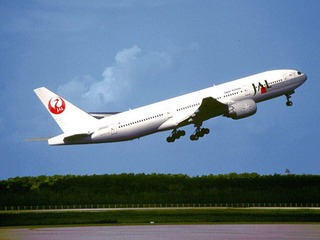
Kayak has traveled a long and winding path to an IPO, but it seems the online travel service has finally paddled its way to a pricing range of $22 to $25 as of a Monday morning SEC filing. Kayak is expected to be valued at near $965 million. The filing also stated that the company will begin trading on the NASDAQ under the ticker symbol “KYAK.”
The company said it’s going to offer 3.5 million shares, in a deal led by Morgan Stanley – Stanley’s first since the Facebook IPO. Other banks participating include Deutsche Bank, Piper Jaffray, Stifel Nicolaus and Pacific Crest.
The IPO will be for Class A shares, and all shares issued prior to the IPO will be converted to Class B.
Last quarter, Kayak reported revenue of $73.3 million, up 39% from $52.7 million in the same quarter the year prior and a net income of $4.1 million.
IPO paperwork was first filed in November 2010 for a $50 million offering, but the company let those and other documents expire, waiting for market conditions to improve for its debut. Google’s new Flight Search tool was also a reason the company gave for delaying its IPO — Kayak wanted to see how adding such a big player to the travel search engine market would change its role.
Google’s $700 million April 2011 purchase of ITA led the company to launch an online travel search service tool and the acquisition has definitely left Kayak wondering if they could lose access to ITA in 2016 when their contract expires for its signature QPX travel search engine data.
Kayak noted last year that “if ITA or Google limit our access to the ITA software or any improvements to the software, separately develop replacement software to which they claim we are not entitled or increase the price we pay for any improvements or replacement software and we are unable to replace ITA’s software with a comparable technology, we may be unable to operate our business effectively and our financial performance may suffer.”
While Kayak has not discussed the effect of Google’s travel search this year, Kayak gets a lot of clout for its name and brand recognition.
Kayak expressed in its filing, online travel spending is projected to grow 10% in 2012, when it will represent 33% of total travel purchases. Thus far it seems that Google hasn’t chipped away at Kayak’s service but Google does have the potential to be a competitor.
Then, in May, rumors began to swirl around the time of Facebook’s debut that Kayak would be trying once again, riding what were supposed to be Facebook’s long coattails.
But, after the Facebook debut couldn’t match expectations, word was that Kayak and 12 other companies were looking for better timing.
The Norwalk, Connecticut-based company now processes more than 310 million user queries for travel info, growth of over 45% over the three months ending in March 31. Meanwhile, Kayak’s mobile apps have been downloaded over 15 million times since their debut in March 2009.
In the last quarter alone, Kayak’s apps were downloaded 3 million times, or 43% growth over the same time last year.
Kayak is backed by private equity players like General Catalyst Partners, Sequoia Capital, Accel Funds and Oak Investment Partners.
With 185 employees, and websites platforms in the U.S. and 15 other countries, the company is looking to see how well its shares can fair pubically.
While Kayak and Facebook are totally different animals, many people have been waiting to see what tech companies following Facebook will be doing as they IPO.
After the Facebook IPO failed to meet the excessive expectations set, it was reported that 13 companies, including Kayak, Tria Beauty, Corsair Components, CyOptics.Graff Diamonds, Formula One, and Vkontakte, the largest social media website in Russia, had all withdrawn its IPOs for fear of a downward trending market.
In May, Bloomberg reported that its IPO Index, which tracks companies for a year after they go public, declined by 15% that month, the same decline the Index saw during the collapse of Lehman Brothers in October 2008, which many cite as the beginning of the current recession.
Now that a few companies are heading upstream to IPO, more will likely follow if they are even moderately received.
(Image Source: Westcoastbrit)




















